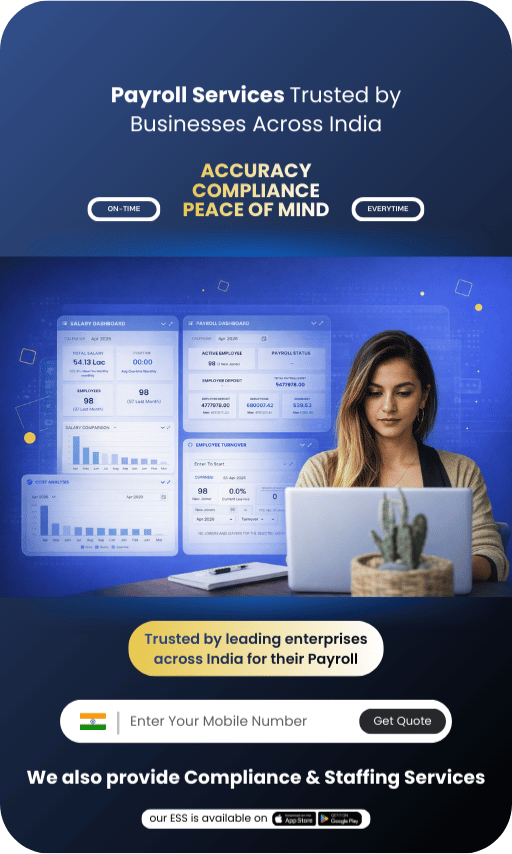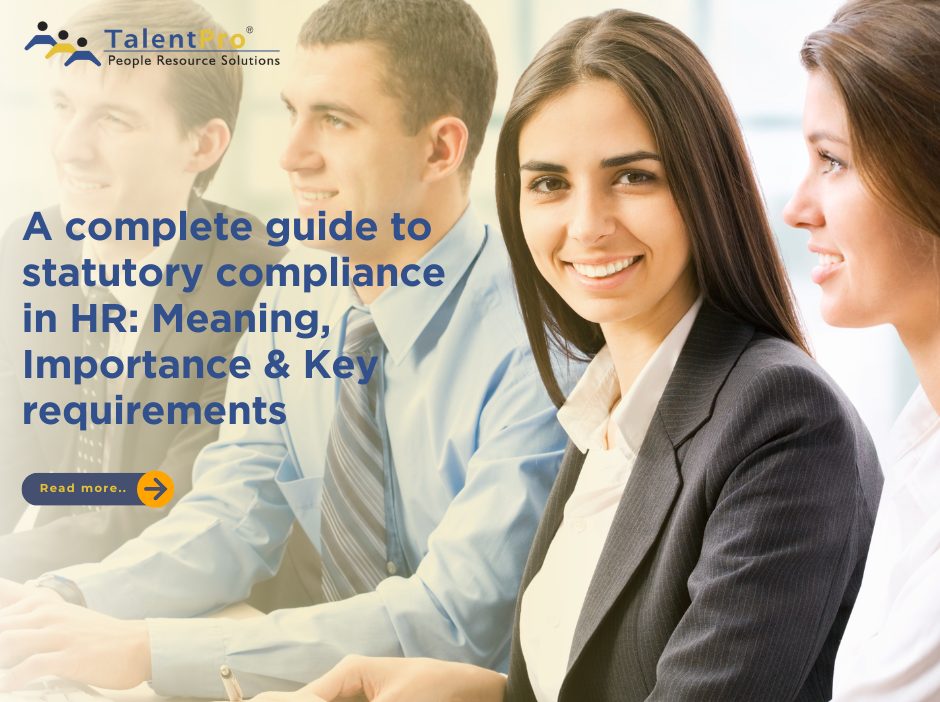Payroll 101: Things You Must Know (Blog Post 1 # 4)
This is a series of blog posts that will address the most important points related to managing payroll. The second in this series will focus on “Understanding Payroll Management in India – Points to consider” The last 20 points from the law post.
Understanding Payroll Management in India
21. Government agencies require you to adhere to certain specific payroll responsibilities. These can be central or state agencies. Some of these responsibilities can be withholding certain percentage of the salary to cover income tax, or Tax Deduction at Source (TDS), medical insurance, provident fund (PF) etc. This post will cover the basics and some key points on how and what you can expect out of your payroll management
What is Payroll?
22.A company Payroll refers to all records of salaries for an employee, wages, bonuses and deductions.
23. From an accounting perspective, payroll refers to the amount paid to employees for services they provided during a certain period of time.
Why is Payroll important?
24. Payroll is critical to any company for several reasons. From an accounting point of view, payroll is crucial because payroll and payroll taxes considerably affect the net income of most companies and they are subject to laws and regulations.
25.From an employee point of view, payroll is a critical department because it records their responses to payroll errors and irregularities. Payroll that is paid on time and accurately creates an environment that is high on employee morale.
What is the role of Payroll department?
26. The primary mission of the payroll department is to ensure that all employees are paid accurately and in a timely manner with the correct withholdings and deductions, and to ensure the withholdings and deductions are remitted in a timely manner. This includes salary payments, tax withholdings, and deductions from a paycheck.
What are the company’s responsibilities?
27. A company is responsible for reporting and depositing taxes to the appropriate agency on time.
28. Any late disbursements can lead to penalties and interest charges, which can be avoided by understanding the structure and function of payroll requirements. Most of these are simple concepts but when not followed, they end up taking a lot of time for the HR and accounting departments.
29. Understanding the different methods of payroll management can ease out a lot of trouble.
30. Small business owners use four common methods for calculating and reporting payroll taxes viz., Manual system, Accountant based system, Payroll software, Payroll service.
31. Each one has its own advantages and disadvantages.
32. Manual system is tedious and time consuming, can be error prone, yet provides full control.
33. Accountant based system adds a financial expense but if the accountant is familiar with the business’ accounting information and how to integrate it into global accounting systems on a future date, then it is worth while. Yet, this provides less control to the small business owner
34. Payroll software ensures that all the payroll calculations are automated. The downside is that there is a learning cure to the software. Deposits and reporting are not in synch and can be treated as separate operations, leading to confusion and double-entries.
35. Outsourced Payroll Service saves time and errors. The liability is shared, and the service can handle from simple deposits and filing to complex tax planning and structuring. Outsourcing to payroll vendors like TalentPro can ensure that though the data is stored in a separate site, it can double up as disaster recovery centre and hence greater flexibility and greater control over critical data.
36. When outsourced to a leading vendor like TalentPro, their Payroll services division can handle central, state and local body regulations pan-India through their strong country-wide network of associates.
37. Compliances are an integral part of payroll management and they should cover:
- Employees Provident Fund (PF) & Miscellaneous Provisions Act
- Gratuity Act
- Employees’ State Insurance (ESI) Act
- Tax Deduction at Source (TDS)
- Professional Tax
- Shops & Establishment Act
- Labor Welfare Fund (LWF) Act
- Trade License Registration
- Contract Labour Regulation Act
- Minimum Wages Act
- Payment of Wages Act
- Maternity Benefits Act
- Employment Exchange (Notification of Vacancies) Act
- Similar other Regulations as applicable for the establishment
38. The Employee Self Service modules should provide / support:
- Pay slip interface
- Reimbursements Processing
- Income Tax Declaration
- Flexible Benefit Plan (FBP) Administration
39. The payroll management system must have an inbuilt comprehensive reporting module that provides analytics and aids clients to make more accurate business decisions.
40. For an organization with over 25 employees, the outsourced payroll vendor must provide for a payroll helpdesk.
41. The helpdesk must provide employees with quick resolutions as per defined SLAs using an email/internet based or a voice based helpdesk
42. Data security is an aspect that deserves a blog post by itself. Yet, it would be appropriate to keep in mind that an outsourced vendor must provide for state of the art IT and security, that is upgraded on a regular basis.
43. Whether you calculate payroll, hire accountants or use outsourced vendor services, always remember that it is the state and central laws that dictate reporting and payment of all payroll taxes and employer’s responsibility.
44. Timelines and accuracy are the two most important points when deciding on the method of calculating payroll.
45. Payroll is a business decision and reliable people and software must be behind this initiative.










